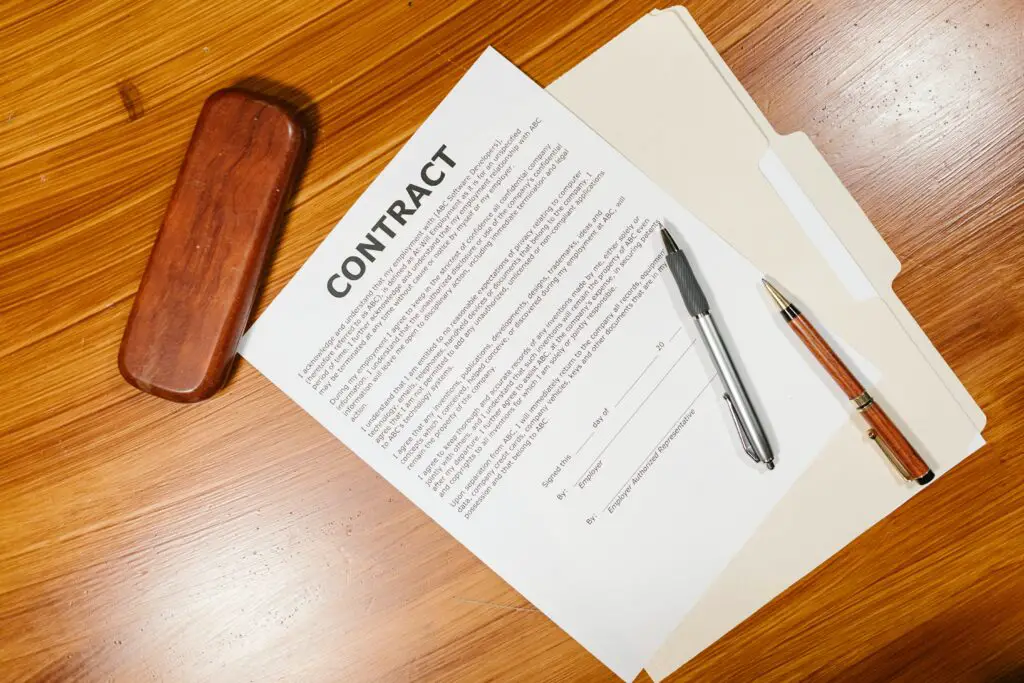Contents
Does 90 Days of Employment Include Weekends?
Imagine you’ve just landed a new job. Excitement bubbles in your chest as you envision the new challenges and possibilities that lie ahead. But soon, you start hearing about a mysterious “90-day probationary period.” It’s like stepping into a puzzle without all the pieces – and the biggest question on your mind is whether those 90 days include weekends. Fear not, because we’re here to shine a light on this enigma.
Understanding the 90-Day Employment Period
Alright, let’s start at the beginning. The 90-day employment period, often known as the “probationary period,” is like the opening chapter of a book. It’s a time of mutual exploration where you, as the new employee, and your employer both assess whether the fit is right. Employers want to see if you’re the superstar they’ve been searching for, and you want to confirm that the company aligns with your aspirations.
Imagine starting a new job at a tech company. You’re excited to contribute your coding skills and innovative ideas. During these first 90 days, you’re not just getting to know your colleagues and tasks, but the company’s culture and values too. It’s a bit like being the new kid in school – you’re eager to make friends and find your place in the class.
Clarifying Weekends in the Employment Period
Now, let’s dive into the crux of the matter – do weekends count within those 90 days? The answer isn’t a simple “yes” or “no.” It’s more like a dance between local labor laws, company policies, and industry norms.
In some places, weekends are indeed part of the 90 days. For instance, if you’re working at a retail store, your probation might include weekends to observe how you handle peak shopping hours. But in other cases, weekends might not be counted if they fall outside the standard workweek. This can make the experience feel a bit like solving a riddle – and the solution varies depending on where you’re located.
Consider joining a customer service team at a hotel. Here, weekends could be integral to your probation because that’s when the hotel receives the most guests. Your performance during busy weekends might hold the key to whether you successfully complete your probation.
Factors Influencing Inclusion of Weekends
Hold on, there’s more to the story. The inclusion of weekends isn’t just about laws and policies – it’s also shaped by the nature of the job and the industry you’re in. Some positions, like healthcare professionals or emergency responders, require round-the-clock availability. In such cases, weekends are an inherent part of the probationary period.
Imagine becoming a nurse at a bustling hospital. Your first 90 days might involve shifts that cover both weekdays and weekends. This setup allows your supervisors to evaluate your performance during varied scenarios, making sure you’re prepared for the diverse challenges of the job.
Legal and Regulatory Aspects
Let’s talk about laws – but don’t worry, we won’t make it feel like a courtroom drama. Labor laws are like the referees ensuring fair play in the employment game. They set the rules for probationary periods and their treatment of weekends.
In some regions, weekends are firmly integrated into the 90-day period. This means your weekends contribute to your probationary journey. In contrast, other places might offer a bit more flexibility, excluding weekends that fall outside the standard workweek.
For instance, consider landing a job in a European country with strict labor laws. If your probation period is set at 90 days, those weekends are most likely part of the equation. On the flip side, if you’re working in a country with more relaxed labor regulations, weekends might not have as strong a presence in your probationary calendar.
Pros and Cons of Including Weekends
Let’s take a moment for some pros and cons – because who doesn’t love a good ol’ list? Including weekends within the 90-day period brings advantages to the table. For employers, it’s like fast-forwarding through the training phase. They get a comprehensive view of your skills, work ethic, and how you handle different challenges. On your end, successfully navigating these weekends might just be your ticket to permanent employment sooner rather than later.
However, there’s another side to the coin. Ramping up the intensity by including weekends could lead to burnout and exhaustion. It’s like sprinting through a marathon – you might cross the finish line, but at what cost? Moreover, there’s the ethical angle. Ensuring a healthy work-life balance, even during probation, is crucial to long-term employee satisfaction.
Imagine you’re starting at a graphic design agency. While the weekends might be part of your probation, the workload could be intense. On one hand, you’re getting immersed in real client projects, which is a great learning experience. But on the other hand, balancing your time effectively becomes a challenge, and you’re left wondering if the pace is sustainable.
Managing Expectations and Communication
Let’s talk about a secret ingredient – communication. Clear communication forms the foundation of any successful relationship, including the one between you and your employer during your probation. Knowing what’s expected of you, including whether weekends count, is vital.
Imagine joining a marketing firm. From the get-go, you have a conversation with your supervisor about how weekends factor into your probation. This discussion not only sets the stage for your journey but also shows your employer that you’re proactive and eager to meet expectations.

Best Practices for Employers
Employers, listen up! Tailoring your probationary policies to fit your company’s vibe is key. Offering support and guidance during this crucial period can make a world of difference. Regularly monitoring your new hires’ progress in a fair and consistent manner ensures a more accurate assessment.
For instance, think about a startup company specializing in app development. By offering a structured yet supportive environment during your probation, they help you acclimate to their innovative culture. Your weekends might be part of the equation, but the company also provides mentorship and resources to help you thrive.
Employee’s Role in the 90-Day Period
Hey, new hires, this part is for you! Remember, it’s not just the employer who steers the ship during those initial 90 days. Your active participation matters too. Seeking clarity when you’re unsure, demonstrating dedication, and taking the initiative – all these elements influence your probationary journey.
Imagine you’re entering a role at a publishing house. During those weekends within your 90-day period, you immerse yourself in learning the editorial process. You’re not just showing up; you’re actively participating in team discussions, seeking feedback, and contributing fresh ideas. It’s like being the knight in shining armor who takes charge of their own quest.
The Evolving Landscape: Remote Work and Flexibility
Guess what? The employment landscape is transforming. With the rise of remote work, the concept of probation is also evolving. For remote positions, the boundaries of weekdays and weekends might blur. Flexibility becomes the name of the game.

Imagine you’ve been hired as a social media manager for a digital agency. Your role is remote, allowing you to work from anywhere. In this scenario, the focus might shift from counting specific weekends to evaluating your overall performance and adaptability in a remote setup. It’s like fitting puzzle pieces together, creating a bigger picture of your capabilities.
Case Studies and Real-Life Examples
Let’s add some real-life flavor to the mix. Meet Sarah, who joined a retail company. Her probation included weekends to assess how she handled peak shopping hours. With a positive attitude and stellar performance, she aced her probation. On the flip side, there’s Mark. He started a job at a tech company but didn’t clarify the weekend expectations. As a result, he struggled to meet the demands and didn’t make it past the probation finish line.
These stories underscore the importance of understanding how weekends factor into your probation. It’s not just about the calendar – it’s about your performance and adaptability during critical times.
Looking Ahead: Trends in Employment Probation
Let’s gaze into the crystal ball for a moment. The future holds intriguing possibilities for the probationary landscape. As technology continues to reshape the way we work, the concept of weekends and their inclusion in probation might evolve. Perhaps, the emphasis will shift more towards assessing your remote work capabilities or your ability to adapt to flexible schedules.
Consider the changing dynamics of a start-up in the tech industry. With an emphasis on innovation, they might place less importance on specific weekends and more on your creative problem-solving skills. It’s like embarking on a journey where the destination keeps shifting, and you need to stay nimble.
Conclusion
So, what’s the final verdict? Does 90 days of employment include weekends? Well, the answer is as diverse as the job market itself. Labor laws, company policies, and the nature of your role come together to shape your probationary experience. The key takeaway? Transparent communication and managing expectations play a pivotal role in ensuring a smoother journey.

As you step into this new chapter of your career, armed with newfound knowledge, remember that your actions matter. Those 90 days, weekends and all, are your opportunity to showcase your skills, adaptability, and dedication. It’s like starring in your very own movie – you decide whether it’s an exhilarating adventure or a nail-biting cliffhanger. So, embrace the challenge, conquer the weekdays and weekends alike, and let your journey begin!





